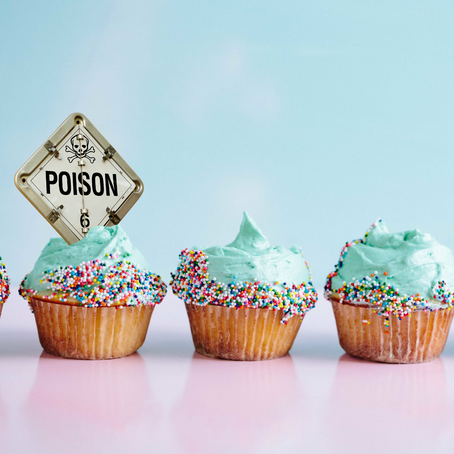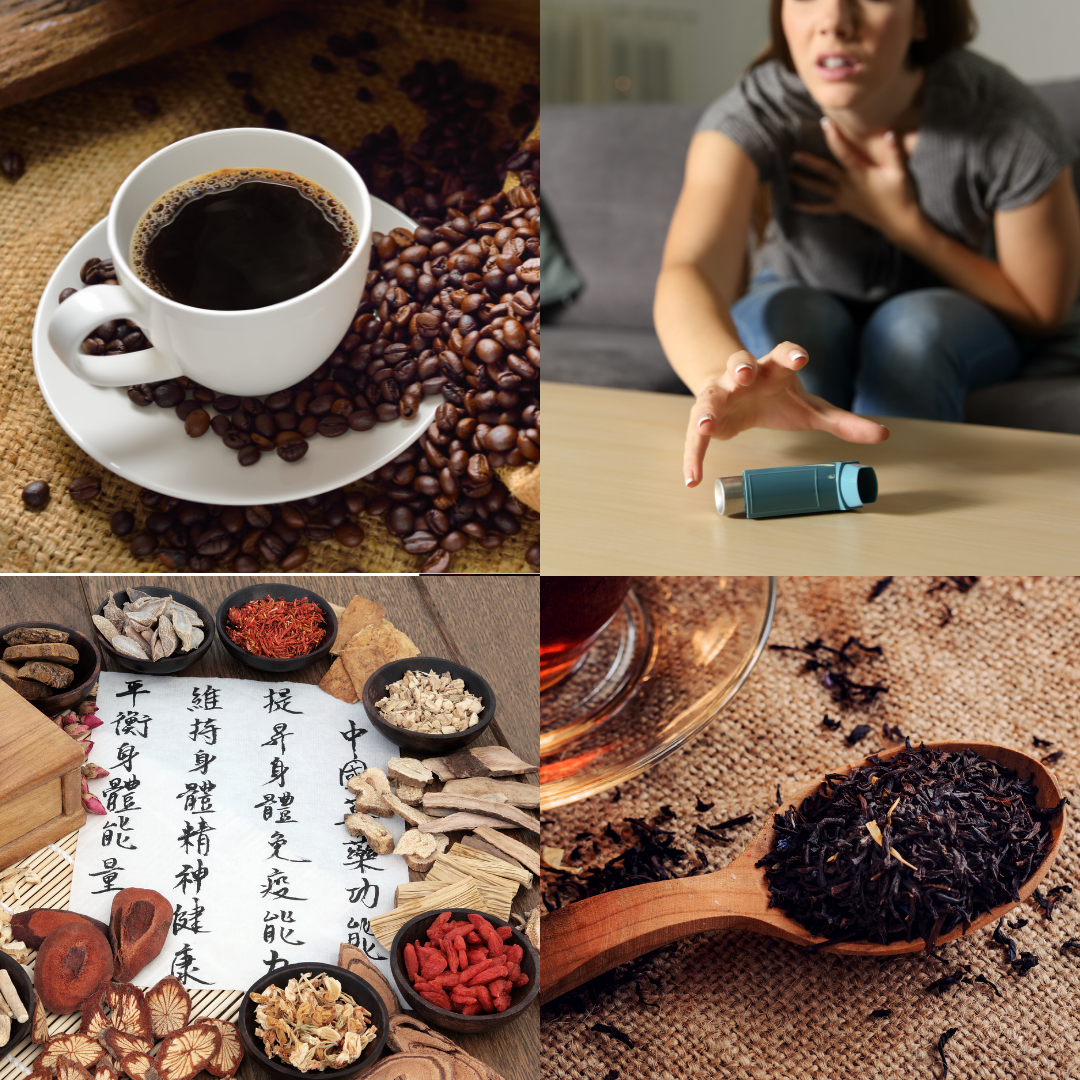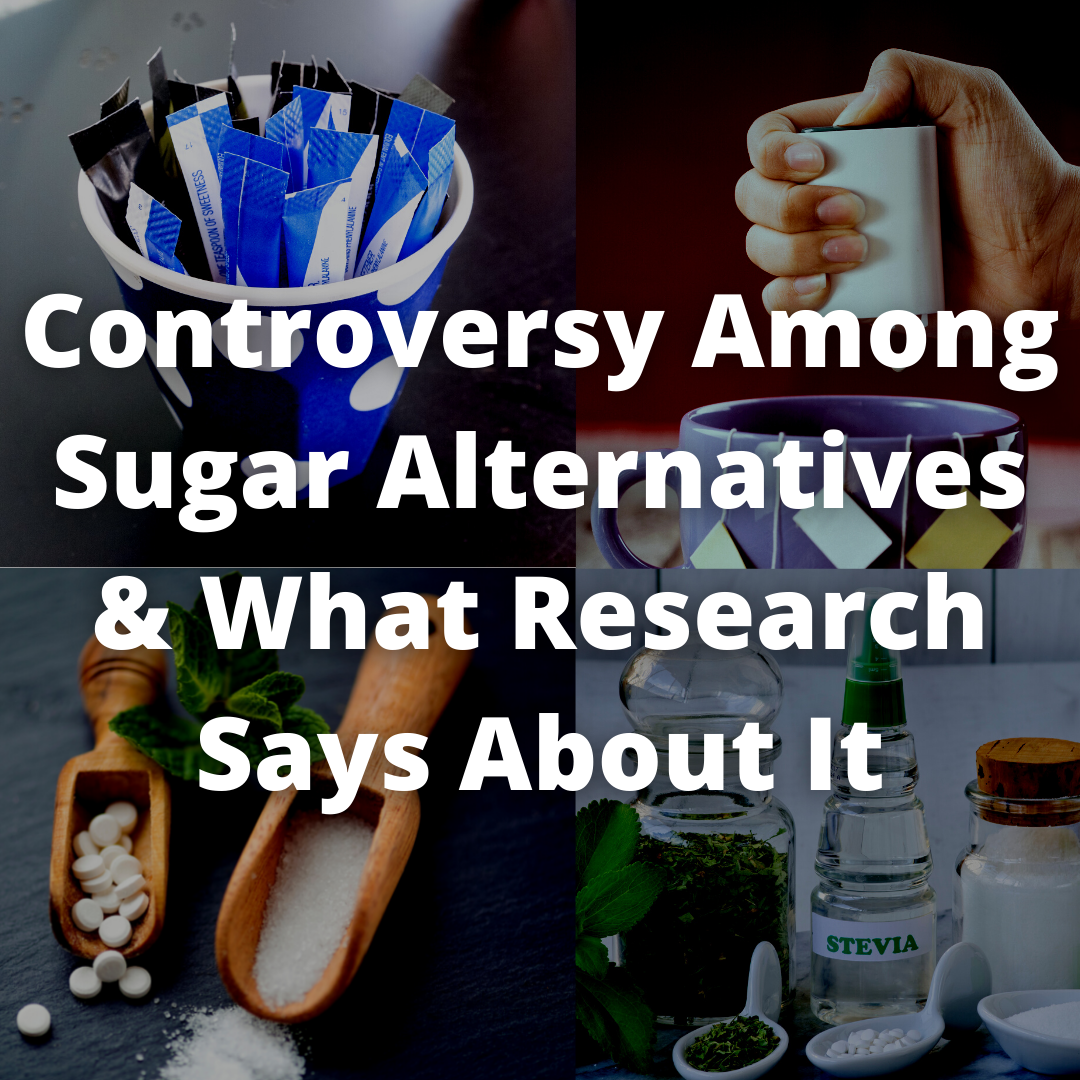 A TCM and Biomedical Perspective By: Matthew Sabey Smith, DACM, MSOM, LAc., Dipl.Ac., CPT ***Disclaimer: The information provided in this article is not meant to be used as medical advice or the treatment/cure of any disease. If you are considering using any of the following information, first consult your medical provider. *** You know the drill right? Every change of the season results in new weather patterns, new things sprouting or dying and as a result somehow if affects you even if you have no idea why. It is pretty interesting however because this occurs as a result of what is going on (not just externally) but internally as well. In traditional chinese medicine (TCM for short) there is a saying that we always discuss “where man fits between heaven and earth.” This relates to the deep rooted conceptual paradigm of Yin and Yang. So let me break this down for you a little bit before we continue. The Yin & Yang Paradigm Yin and Yang is something that comes up a lot in traditional chinese medicine but also in society - yet a lot of people don’t actually understand the root of it and why it is so useful. The concept of yin and Yang originated from the comparison of a hill where one side was lightened up from the sun while the other side was dark due to a lack of sun. You could picture this as one side facing the sun and the other facing the moon. Yin and yang is not a “one or the other” concept but rather a relationship between the two. As you would see a hill, the progression of light would progressively change as it crosses from one side to the other- therefore showing different degrees of lightness or darkness. So the reason this is so useful in diagnosis, understanding health, and the individual symptomatology of a person is because it is all relative to the factors present. The Spring Vs The Summer Let’s take a more simple approach, if you suffer from seasonal allergies in the spring, but your friend suffers from seasonal allergies in the summer, you would just chalk it up to different blooming seasons right? Well what if I told you it is deeper than that… Thankfully we have biomedicine to diagnose you and your friend with the condition of seasonal allergies- but…. Does that mean just take an antihistamine for the rest of your life? Well, yea you could, and there will be side effects such as chronic dry throat (thus reducing your immunity long term), but remember how I was just discussing that whole yin and yang thing and the idea of everything is relative? Wei Qi & Immunity From a traditional chinese medicine perspective, you and your friend would be suffering from two different forms of allergies “wei qi deficiency” that correlate to the season. Now this gets a bit complicated for some but stay with me here. In TCM, wei qi is our defensive qi (our immunity) and when that is functioning at a lower capacity that opens up the “window” to let in these allergens that create your “seasonal allergies.” Therefore, if you and your friend were perfectly healthy individuals then you actually not get triggered by the seasons, but now that is a sign we need to dive deeper into the imbalance and this is where TCM gets to be even more exciting! Spring has the correlation with the internal organs Liver and Gallbladder and this group is known as the “wood” element in five element theory. So what factors make this organ system not function optimally? Stress and frustration are the easiest to start with. In bloodwork, aside from testing what you are allergic to and your regular CBC with differential, we would look for AST and ALT numbers to see if there are correlations of imbalance as this would be an indication the liver is already not up to speed aside from a rise in white blood cell activity reacting to the allergens. There could also be an indication as well if there is a cholesterol imbalance such as a low HDL or a high LDL and triglycerides indicating more chronic conditions. These are just a couple examples of many connecting TCM and Biomedicine together for the Liver/Gallbladder system, thus possibly indicating the reason you would also have a lower functioning immune system in the spring and viola SEASONAL SPRING ALLERGIES! “Well what if my bloodwork is perfect?” Then this is when we check to see if you are stressed! Stress and anger is always the killer and cause for the majority of disease, so at times your are more frustrated especially in the spring, in TCM this “stagnates” your liver function, thus indicating your liver and gallbladder are not functioning optimally. Other emotional factors such as feeling “stuck” or feeling a “lack of direction” or “unable to make decisions” would be things to look for on a long term scale. So what about the Summer? Well your friend who has allergies in the summer would be suffering from a different issue. In TCM the summer correlates to the Heart, Small Intestine, Pericardium & San Jiao (Fluid Balance- think of lymph to keep it simple). The emotional aspect of these TCM systems have to do with the ability to separate pure from turbid (both with nutrients as well as actual decisions in life!) If someone suffers from poor sleep, anxiety, chronic mania, and/or prefers chaos in their lives (either through jobs or relationships for example) this is when we begin to dive deeper. How does this show up in biomedicine and relate to our seasonal allergies? Well, let's really think of what the heart does The heart needs to pump blood through the arteries in order to bring oxygen to all necessary tissues right? Well, aside from our CBC with differential for our allergies, then we also want to look at what may affect the heart. We would put a larger emphasis on the Lipid Panel for the sake of the arteries, and could look into a Full Blood Count, ECG (Echocardiogram) to make sure the heart is in tip top shape. Now, what about the small intestine? The small intestine is what is responsible for absorbing the nutrients we need from our food! So if we are not absorbing what we need or we have a gut imbalance BING BING BING then you will likely have allergies that kick up ALOT in the summer! So what additional tests could we consider here? The big symptom associated with the small intestine is borborygmi (that little gurgling sound your abdomen may make from time to time) but if it is chronic and you also feel some pain or chronic gas and bloating, listen up! It would be best to rule out gut imbalances in this case such as parasites, overgrowths (like candida) or other dietary allergens like gluten which is common, or simply consuming too much sugar! This can typically be seen from a biomedical standpoint by a simple stool test to look for any imbalances which YES, would thus make your immune function lower especially during the summer allowing more allergens to affect you! In Conclusion Whew that was a lot! But, this is how allergies go much deeper than a simple “pollen season.” In theory, if everything is healthy internally, then you would have no issues from your external environment. This article was intended to explain the relationship how we can use both TCM and Biomedicine together in order to accomplish a more definitive conclusion regarding what, on the surface, may seem like no big deal. Every symptom does play a role long term, and the sooner you know how your body is functioning, the sooner you will be able to enhance your life, health and optimal performance!
2 Comments
Discussions on the Potential Clinical Applications of Coffee and Black Tea for Asthma as compared to Traditional Chinese Medicine Formulas
By: Matthew Sabey Smith, DACM, MSOM, LAc., Dipl.Ac., CPT ***Disclaimer: The information provided in this article is not meant to be used as medical advice or the treatment/cure of any disease. If you are considering using any of the following information, first consult your medical provider. *** Introduction Quite often, like any person, you may have searched the internet for ideas about how to deal with your asthma. Between your wheezing and whistling, your little thumbs are typing as fast as possible to find a solution because you happened to forget your inhaler before you got on the plane. Well, now you’re stuck, your doctor isn’t available over the phone and you need relief in order to get the seemingly unattainable oxygen into your lungs while all you want is to lie down in peace. Well maybe you came across caffeine as a quick, fast acting relief? Let’s check it out. Asthma As you probably already know, asthma is a very common condition that is everywhere. Asthma can have a number of triggers such as environmental factors, poor air quality, allergens, colds and flu as well as dietary factors. But while you are having an asthma attack, you don’t care about any of that, you just want to breathe in peace. An asthma attack is commonly when a person is wheezing (whistling sounds coming from the lungs) and it is hard to catch a full breath. Asthma is commonly known as an inflammatory condition that creates a closing of the airways and bronchial tubes. Asthma in Traditional Chinese Medicine (A Very Brief Overview) To a Traditional Chinese Medicine (TCM) practitioner, there are different types as asthma. Commonly in TCM, asthma is typically caused from an excess or deficiency condition deficient condition. With asthma there are a few factors that play a role in TCM. The lungs, kidneys, liver and spleen systems all need to be working properly in order to keep asthma from affecting someone. When there is an issue with any of these systems, it commonly can create asthmatic conditions. The lungs need to be functioning for what reason? So that they can retain the air properly and correctly work with the entire pulmonary respiratory system in order to use oxygen and exhale carbon dioxide. When the lungs do not work properly, people will experience abnormal sweating, excessive dryness in the throat and skin and struggle breathing in. For an excess lung condition the lungs will feel hot, the person may have a cough and it could be accompanied by yellow phlegm or sputum (not fun at all!). Deficient patients will likely have a runny nose, and won’t be able to stop cold sweats and will feel physically cold. Patients who have signs of asthma relating to the kidneys would likely be more due to a deficiency issue. When the kidneys are weak, then in TCM the kidneys cannot grasp the “lung qi” downward and the patient will also experience wheezing, may have low back pain or weak knees associated with it. Patients who have signs of asthma relating to the spleen function, there is likely a lot of fluids (dampness) associated with the asthma. When asthma is associated with a lot of mucus buildup, typically this is a sign the spleen is not able to transform and transport fluids properly and the result is excess “dampness” and mucus that is in the lungs. Patients who have issues with asthma relating to the liver system will have stress and frustration. Stress and frustration, while an emotional component, can create wheezing and constriction on the airway and as a result this emotional factor will inhibit proper breathing. In TCM it is common for these organ systems to need to be balanced for proper breathing to occur. Therefore, it is a responsibility of the practitioner to put all the pieces of the puzzle together. So Can Caffeine from Coffee or Black Tea Help My Asthma Attack? The quick answer is yes it is possible- but it depends. There is more to understand before we start swimming in our coffee to have a continuous, forever supply of caffeine (Don't do this- horrible idea!). The bottom line is that caffeine can be a quick fix that is similar to bronchodilator Beta-2 Agonist medications like Theophylline (Welsh et al., 2010). It has been shown that caffeinated coffee or black tea can typically provide around four hours of relief for a person experiencing an acute asthma attack (Gotter A, n.d.). This would obviously be more effective for someone who does not normally use caffeine because there will not be a built up tolerance to it to begin with. It is important to note that overuse of caffeine can overly tax the adrenal system (which sit right on the kidneys...hint hint) and should not be dependently used. This is where your newfound understanding of TCM can help. If we continuously tax our kidneys then our kidneys will not be able to assist properly in our breathing in the future! Therefore- this is only an idea for when in a pinch! Quick Note: The part that modern research does not mention is the fact that caffeine is naturally a "warming" substance in TCM. Therefore any condition that is not "deficient" would not be properly aided by caffeine and could potentially be exacerbated! TCM Alternatives For Heat (Excess) Associated Asthma As we have discussed, TCM has different ways to identify causes and issues associated with asthma attacks. Asthma associated with heat conditions (commonly excess conditions) would likely be relieved from the treatment of the heat condition itself. Formulas such as Gan Mao Ling, Yin Qiao or an herb such as Luo Han Guo (one of my absolute favorites that tastes great!) are useful at removing heat from the lungs to relieve the hot, inflammatory irritation associated with heat conditions like many types of colds, flu, and bronchitis. For these conditions, caffeine would be contraindicated for the asthma treatment. Caffeine is “tonifying” and warming in TCM so we would be making the condition potentially worse over time! Acute stress would also fall into this category! Therefore, if we treat just the stress in this situation with something such as Xiao Yao San, then the wheezing could potentially be mitigated or completely removed. TCM Alternatives for Cold (Deficient) Associated Asthma It is common that asthma usually has some underlying deficiency associated with it in TCM. These types of conditions are why asthma could be relieved by caffeine. For TCM there are some options that will not have the same taxation on the adrenal system however. A formula such as Ding Chuan Tang could be a typical good option. Also known as “Arrest Wheezing Decoction” Ding Chuan Tang helps with asthma associated with spleen and lung deficiencies. This formula would help strengthen the spleen to transform and transport fluids properly to prevent the buildup of mucus and phlegm in the lungs. The lungs are also strengthened by this formula by dispersing the “cold” (cold creating deficiency) and stopping the wheezing within the lungs. A second common option to treat deficient asthma through TCM relates to asthma typically associated with a disorder of the Kidney system. The combination of Dong Chong Xia Cao and Ge Jie commonly is used to treat asthma. This would be a situation where the "lung qi cannot be grasped by the kidneys." Meaning essentially that the person cannot take a full breath that feels satisfying. This combination however would strengthen the kidney system function in order for this to occur. This would not be appropriate for a person who has any cold or flu like symptoms (American Dragon, 2017). Dryness, Moisture & Dehydration One aspect that is typically overlooked in the management of asthma is the factor of dryness. Dryness means there is not enough moisture within the lungs to keep them well lubricated. Think of it this way- when something is dried out, it heats up. Well- same thing here. This is why proper hydration and moistening herbs would be essential for someone who presents as very dry (dry cough, dry skin, dry throat). This is when we could employ something like the Luo Han Guo once again alongside a common formula like Liu Wei Di Huang Wan. These help moisten the lungs, keep the body well lubricated and thus mitigate asthma associated and triggered from the dryness (which could be as simple as a dry climate or having the heat on in the house!). Conclusion Overall, the use of caffeine from black tea or coffee can, in certain cases as you now know, likely and effectively relieve asthmatic wheezing symptoms. As we discussed, it is not a fix-all for long term asthma, but it can help in certain cases in a pinch. As a TCM practitioner however, the use of any of the discussed formulas (depending on the condition) would be more specific and effective for asthma, especially for longer term relief. In the end, in order to properly get asthma under control, the TCM herbs would likely be more effective in relieving both acute asthma and long term asthma and a practitioner would be needed to properly diagnose and treat the condition. References: American Dragon. (2017). Ding Chuan Tang. Retrieved April 13, 2019, from https://www.americandragon.com/Herb Formulas copy/DingChuanTang.html Gotter, A. (n.d.). Emergency Home Remedies for Asthma Attacks: What You Can Do Now. Retrieved April 13, 2019, from https://www.healthline.com/health/emergency-home-remedies-for-asthma-attacks#mustard-oil Welsh, Bara, Barley, & Cates. (2010, January 20). The effect of caffeine in people with asthma. Retrieved April 13, 2019, from https://www.cochrane.org/CD001112/AIRWAYS_the-effect-of-caffeine-in-people-with-asthma  By: Matthew Smith, DACM, MSOM, Dipl.Ac., CPT ***Disclaimer: This article is not intended to be used as grounds to claim a cure of any disease. If you are thinking about using an herb, supplement, or therapy of any kind please first consult your primary care provider *** Controversial Topic: Sugar Alternatives Are Healthy Alternatives Over the last decade there has been an extreme spike in the popularity of sugar alternatives making claims that they are diet, low calorie, longer lasting flavor, sweeter flavor, healthier alternatives for consumption in food. However there is a huge grey area when it comes to alternative sweeteners as the market has blown up with just about everything else to avoid using as much sugar. While sugar may be a classic and utilized sweetener, sweeteners like aspartame, sucralose, stevia, erythritol, xylitol, stevia, monk fruit extract are popping up everywhere in the market being advertised as healthier alternatives. However, what is good, what is bad and what are healthy limits to consume, if any, of these substances? Who are the key players/influencers/influenced or what are the major concerns of the topic at hand? Healthcare practitioners, trainers, coaches, consumers, athletes, anyone that consumes anything sweet! The major concern is that there is a lack of concrete evidence matching claims that alternative sweeteners are in fact healthier alternatives in food products. The research is lacking and not easily available to the public while certain research is potentially being influenced by corporations to sway the population. Who is for sweetener alternatives and who is against them? Surprisingly there was not a lot of research that was either for or against the use of alternative sweeteners. However what I found was rather interesting with some potential flaws. The question we are trying to answer is whether or not alternative sweeteners are beneficial in comparison to something like sugar. Since they tend to be advertised many times as “healthy” rather than neutral, this can in fact be very misleading. The first of two sources that I came across which are in support of greater research and conservative sweetener consumption is the article that discusses Intense Sweeteners and Taste Receptors and how the intense sweeteners play a role in gastrointestinal dysbiosis. Another article that also has conservative information regarding the use of sweeteners was from Tufts University titled, The Facts About Natural Sugar Substitutes. This was actually a newsletter put out by Tufts University earlier this year that talked about natural sweetener alternatives which included pros, cons and needs for further research. The articles that were “inconclusive” or made statements that alternative sweeteners were safe included an article researching Metabolic syndrome, non-alcoholic fatty liver disease and the gut microbiome. Now while this article is in favor of researching the potential unhealthy correlations between sweeteners, it points out something more important. It points out how necessary it is for further research. This study showed that due to lack of long term study, there is no way to know for sure the potential outcomes of negative side effects of some sweeteners. I still placed this in the non-supporting research however because it shows the bigger issue at hand and the study itself was not able to show that alternative sweeteners are safe or effective for longer term health. The last article, which I found to be very interesting was titled, The Effects of Non-Nutritive Artificial Sweeteners, Aspartame and Sucralose, on the Gut Microbiome in Healthy Adults Secondary Outcomes of a Randomized Double Blinded Crossover Clinical Trial. The research concluded that “aspartame and sucralose did not cause measurable changes in the gut microbiota or SCFAs after 14 days of a realistic daily intake in healthy participants” (Ahmad, S. Y., et al, 2020). Here is where it gets interesting because substances like sucralose and aspartame have been in question and rather under fire with potential links to actual poisoning potential and creating dysbiosis. As I read further into the article I noticed this research was sponsored by PepsiCo. It should be noted that PepsiCo. uses these sweeteners in their products. It would therefore reflect poorly on the company if these sweeteners were found to be “unsafe” for consumption. How can we see this from a Traditional Chinese Medicine (TCM) Theory standpoint? Coming from a TCM perspective we can look at this from a liver, spleen and stomach perspective in relation to symptomatology and herbal study. What we know is that the spleen and stomach tend to be tonified and warmed from too much sweetness and flavor. This does not necessarily mean sugar as our focus is more so on flavor. Therefore even if something is a sugar alcohol, based on tcm herbology, the sweet flavor can still overload the spleen and stomach systems with excess "dampness." Excess dampness hurts the spleen and stomach function and thus leads to poor digestion and build up of excess body fat. When there is more fat this can lead to more heat and damp heat as well as time goes on. This dampness as a result can later become damp heat which can accumulate and become an issue long term. This could lead to some ugly health outcomes like obesity, insulin resistance, high blood pressure, and cholesterol imbalances if these sweeteners could simply be linked to throwing off aspects of the gut microbiome. How has this become a controversial issue and is there a clear path in the research that dispels a sense of controversy around the topic? This seems to be a controversial issue because there is not a clear cut answer what the effects of these sweeteners really do to the body. Based on past experiences I have seen that the more artificial non-nutritive sweeteners have been linked to many issues including spikes in insulin which can be dangerous. I have personally seen the use of aspartame and sucralose in many of the products that my powerlifting teammates, coaching clients and all over the web. They think these products are good for them because they have less than 1 gram of sugar per serving but in reality there is the potential for them completely throwing off their gut health which is imperative for optimal health and performance. The trouble is, finding the evidence is not easy due to the obvious conflicts of interest with these being in so many products. Natural sweeteners may be a better alternative but research is also lacking in quality, and long term effects. It is also important to note this is a broad topic that could become more specific. Some alternative sweeteners do have the potential to be helpful, however my larger skepticism has to do with aspartame, sucralose and stevia that has been tampered with in a laboratory. References 1. Ahmad, S. Y., Friel, J., & Mackay, D. (2020). The Effects of Non-Nutritive Artificial Sweeteners, Aspartame and Sucralose, on the Gut Microbiome in Health Adults: Secondary Outcomes of a Randomized Double Blinded Crossover Clinical Trial. 2. Green, C. H., & Syn, W.-K. (2019, May 11). Non-nutritive sweeteners and their association with the metabolic syndrome and non-alcoholic fatty liver disease: a review of the literature. Germany. https://eds-a-ebscohost-com.pacificcollege.idm.oclc.org/eds/pdfviewer/pdfviewer?vid=4&sid=2affcc67-3a58-4012-a94c-9a64f59f4f9e%40sessionmgr4008. 3. Tufts University. (2021, March). The Facts About Natural Sugar Substitutes. Boston, MA. https://eds-b-ebscohost-com.pacificcollege.idm.oclc.org/eds/pdfviewer/pdfviewer?vid=1&sid=c1dceeae-31fc-4fda-8fac-38bc10ed02b0%40sessionmgr103. 4. Turner, A., Veysey, M., Keely, S., Scarlett, C. J., Lucock, M., & Beckett, E. L. (2020, June 8). Intense Sweeteners, Taste Receptors and the Gut Microbiome: A Metabolic Health Perspective. https://eds-b-ebscohost-com.pacificcollege.idm.oclc.org/eds/pdfviewer/pdfviewer?vid=2&sid=28438691-71df-45a4-8eca-6f991e0862d8%40sessionmgr102.  Health & Human Performance Coach, Doctor of Acupuncture and Chinese Medicine, professor, and competitive strength athlete, Matthew Sabey Smith DACM, MSOM, Dipl.Ac,, CPT is the owner and founder of Strength Smith Training Systems LLC. With an extensive background in integrative holistic health, training and coaching, Dr. Matt uses his knowledge to help individuals improve their training, boost their recovery and maintain optimal balance as they chase their athletic, fitness and health endeavors. |
Details
Topics
All
Archives
June 2022
Author:Doctor of Acupuncture and Chinese Medicine, Coach, Professor, and competitive strength athlete, Matthew Sabey Smith DACM, MSOM, LAc., Dipl.Ac,, CPT is the owner and founder of Strength Smith Training Systems LLC. With an extensive background in integrative holistic health, training and coaching, Dr. Matt uses his knowledge to help individuals improve their training, boost their recovery and maintain optimal balance as they chase their athletic, fitness and health endeavors. |



 RSS Feed
RSS Feed